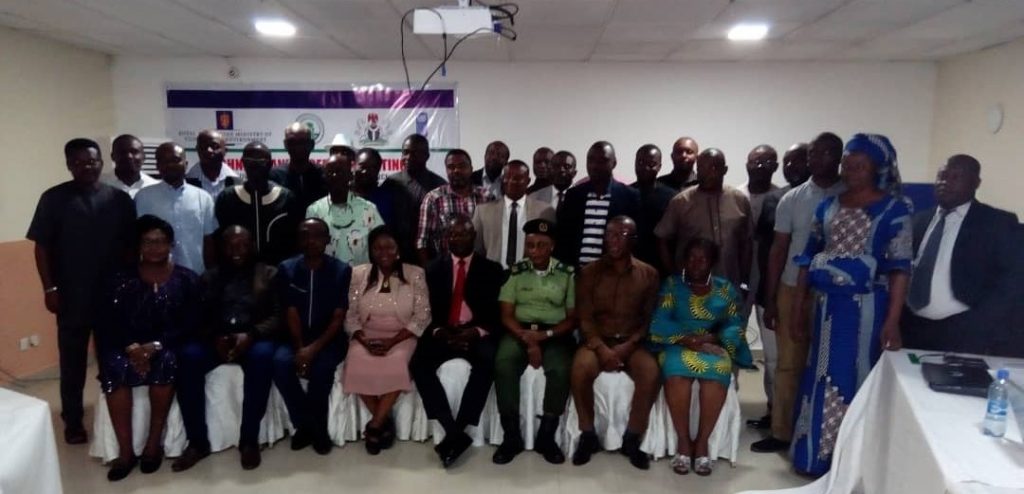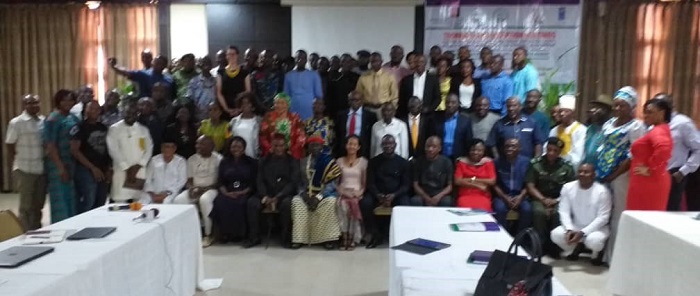The Cross River State Government has officially kicked-off the investment phase under its Reducing Emission from Deforestation and Forest Degradation (REDD+) programme, thanks to support from the Governors’ Climate and Forest Task Force (GCF-TF).

Courtesy of the UN-REDD+ Programme, Cross River State (CRS) developed a REDD+ Strategy and other required operational documents to attain REDD+ readiness and the United Nations Development Programme UNDP) – one of the three component organisations under the UN-REDD+ – over the years assisted the state to transit from readiness to investment phase, which is now being enabled by a newly-secured $400,000 (N144 million) funding from the GCF-TF.
The initiative entails, among others, processes towards devising an Investment Plan to implement the programme’s investment phase.
At a Technical Committee Meeting and Stakeholder Forum held in Calabar from Thursday, June 6 to Friday, June 7, 2019, stakeholders including governments, civil society, private sector indigenous communities, academia, media and the national and international REDD+ community while initiating the commencement of the GCF-TF project, identified conceptual and analytical framework for developing an investment plan for CRS REDD+ strategy.
The technical session on Thursday was attended by members of the CRS REDD+ Technical Committee and prepared grounds for the inception meeting that held the following day.
Mr Obang Akwaji, Permanent Secretary in the Ministry of Climate Change & Forestry and chair of the Technical Committee, while welcoming members, underlined the need to interface with the water sector to effectively manage the state’s watershed, as well as the Ministry of Finance, private sector players, timber dealers, energy sector, mining and infrastructure developers, and legal practitioners.
Coordinator, CRS REDD+ Programme, Mr Patrick Coco-Bassey, said that even though the programme has transited into the investment stage, the readiness phase is nonetheless a continuous exercise “where we continue to dot the ‘I’s and cross the ‘T’s”.
Describing the gathering as the first Technical Committee Meeting under the investment phase of the programme, he charged members to update and make input in the GCF proposal, trigger inception for the implementation of the GCF-TF project while identifying priorities for investment, and explore lessons learnt from previous scheme/sites.
There were also contributions from Dr Alice Ekwu, the immediate past Commissioner for Climate Change & Forestry; Martins Egot, Secretary of the Technical Committee and representative of CSOs and communities; and Tony Atah, a consultant.
A syndicate session that explored priorities for an Investment Plan ensued and members, in groups, discussed and devised action plans on thematic areas like agricultural sector, forestry sector, private sector, energy, as well as enabling policies and measures.

The stakeholder inception meeting the next day featured a review of objectives and workplan for the GCF-TF scheme, along with the development of an Investment Plan.
Alexis Arthur of the UNDP gave an introduction of the GCF-TF, explaining its genesis, workplan and progress towards REDD+ implementation in the state. She explained that the second phase of the funding is valued at $6 million.
Dr Moses Ama, National Coordinator, Nigeria REDD+ Programme, also shed some light on the initiative, saying that Cross River State is an integral part of Nigeria’s efforts to reduce deforestation and forest degradation (REDD+), as the state holds over 50% of the nation’s remaining pristine forests covering over 640,000 hectares.
There was also discussion in groups on opportunities and gaps in relation to the investment plan. In the forestry sector for example, activities identified were listed to include:
- Carrying out need assessment in jurisdiction
- Supporting pro-forest livelihood
- Empowering women, youths and vulnerable groups in domestication of NTFPs
- Supporting climate smart agriculture practices
- Awareness raising through print and electronic media across all sectors
- Strengthening environmental education units, the CRS forestry commission and CRNP
- Community awareness creation on REDD+ and forest related activities
- Building centre of excellence for REDD+ in CRS
- Supporting capacity building for relevant stakeholder
- Building capacity in knowledge management, MRV and data base management
